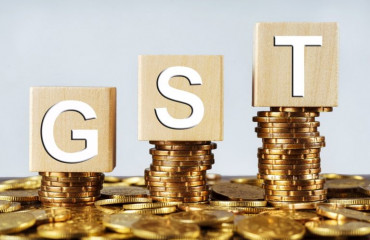
Last checked, US-based Tesla had not taken the bait of India’s policy package unveiled in March to attract global makers of electric vehicles (EVs), though Vietnam’s VinFast may qualify for its benefits—which include low-tariff imports of EVs worth under $35,000 apiece for five years—and Germany’s famous Mercedes-Benz has it under consideration.
Last checked, US-based Tesla had not taken the bait of India's policy package unveiled in March to attract global makers of electric vehicles (EVs), though Vietnam's VinFast may qualify for its benefits—which include low-tariff imports of EVs worth under $35,000 apiece for five years—and Germany's famous Mercedes-Benz has it under consideration.
As reported, Mercedes India's CEO Santosh Iyer has said the car-maker is ready to invest $500 million, the qualifying minimum, if it could be certain that today's 5% GST rate for EVs stays in place for at least a decade. In itself, this is not an unreasonable ask. But is it likely? Since GST is in need of a slab overhaul, apart from the fact that the GST Council can and does tweak its details, an exact rate prevailing for 10 years cannot be assured.
But to the extent that a 'merit' slab has bipartisan favour, an especially light levy on EVs could be taken for granted. It's a fair bet that this policy is subject more to climate than political change, so a single-digit GST should hold. What may prove less steady is how hybrid cars are taxed.
Also read: Budget 2024 expectations: 'Need balanced tax structure for economic resilience'
As we could speed up our drive for cleaner transport by lessening their current GST overload, EV makers can't rule out stiffer price rivalry brought about by hybrids getting re-slotted as 'merit' products. All this spells what's often called 'tax uncertainty.' Neither precise nor relative GST rates can be forecast.
Yet, it's not just global investors who seek tax stability. Everyone does. What India can—and ought to—promise everyone is that Indian tax policy will aim to satisfy what the world's early economists called "canons of taxation."
Under the basic tax principles laid down by Adam Smith (1723-1790), among others, for a tax system to be sound and effective, it must be marked by equity, certainty, simplicity, convenience, economy, flexibility and neutrality. Each of these canons has a clear rationale. Equity upholds fairness as an ideal, and among other aspects of it, all burdens placed on people must be proportional to their ability to pay.
It also asks states to rely more on direct taxes like income tax for revenues than on indirect ones like GST—which burdens all consumers alike, rich or poor, who make the same purchase. Overall, the hard-up must not pay a bigger slice of their earnings than the well-off. The canon of certainty asks for taxpayer awareness of what they owe, by when, and how to pay up.
Also read: 53rd GST Council Meet Today: What are the key expectations?
It can be interpreted to include tax stability, as taxpayers should not be forced to keep track of frequent tweaks. Not only does instability expose people to error risk, it makes it harder to do business, as strategic decisions often need to be taken on the basis of future costs. Clarity clearly aids an economy. Hence the next canon—of simplicity. Any tax must be easy to comply with.
It reduces the risk of unfair penalties for easily made oversights and fosters better compliance. There are also the trio of convenience, asking for easy-to-pay taxes; economy, seeking minimal cost-of-taxation for both the state and its assessees; and flexibility, requiring a regime that can adapt to evolving conditions.
Last but not least is the ideal of neutrality, which asks tax policy not to distort an economy, an effect that can arise if taxes warp market forces of demand and supply so badly that they skew economic behaviour and risk resource misallocation.
Lofty as these principles are, how India fares on them is a good question, with countless examples of misalignment. What we can—and must—do is commit our tax reforms to their broad guidance. This can assure investors too.
